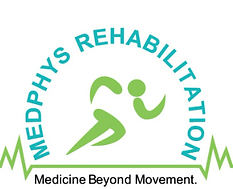FAQs
-
Exercise Physiology
-
Physiotherapy
-
Hydrotherapy
General Questions
Exercise Physiology is the study of how the body responds to physical activity and exercise. Accredited Exercise Physiologists (AEPs) use evidence-based exercise interventions to manage and prevent chronic diseases, injuries, and other health conditions.
AEPs can assist with a wide range of conditions, including cardiovascular disease, diabetes, arthritis, obesity, chronic pain, mental health conditions, and musculoskeletal injuries.
No, you don’t need a referral to book a private session. However, for Medicare, NDIS, DVA, or WorkCover-funded sessions, a referral may be required.
Unlike Personal Trainers, AEPs hold a university degree and are accredited to manage clinical and chronic health conditions. They work alongside medical professionals to provide tailored, therapeutic exercise programs.
Private Health Fund
Yes, many private health funds cover Exercise Physiology under ‘extras’. Check with your insurer for specific coverage details.
Generally, no referral is needed, but it’s best to confirm with your health fund.
Medicare (EPC)
Yes, under the Chronic Disease Management (CDM) plan, eligible patients can access up to five subsidized sessions per calendar year.
You need a referral from your GP under a CDM or Enhanced Primary Care (EPC) plan. Your GP will determine if you’re eligible.
NDIS
Yes, Exercise Physiology is funded under the “Improved Health and Wellbeing” or “Capacity Building” categories. Check your NDIS plan for details.
Not necessarily. Exercise Physiology services are accessible for self-managed, plan-managed, and agency-managed participants.
DVA
Yes, eligible DVA cardholders can access Exercise Physiology services at no cost with a GP referral.
A D904 referral form from your GP is required for ongoing care.
WorkCover
Yes, if your injury is work-related and Exercise Physiology is part of your rehabilitation plan.
You’ll need a WorkCover-approved rehabilitation plan and a referral from a GP or treating specialist.
General Questions
Physiotherapy is a healthcare discipline that focuses on restoring movement and function when someone is affected by injury, illness, or disability.
Physiotherapists treat musculoskeletal injuries, post-surgical recovery, neurological conditions, chronic pain, respiratory issues, and more.
No referral is required for private appointments. However, referrals may be needed for Medicare, NDIS, DVA, or WorkCover-funded sessions.
Techniques include manual therapy, exercise programs, dry needling, electrotherapy, and education on self-management strategies.
Private Health Fund
Yes, most health funds cover Physiotherapy under ‘extras’. Coverage depends on your policy.
No, referrals are not typically required for private health claims.
Medicare (EPC)
Yes, eligible patients under a CDM plan can access up to five subsidized sessions per calendar year.
Your GP must assess your condition and provide a CDM or EPC referral to qualify.
NDIS
Yes, Physiotherapy is available under “Improved Daily Living” or “Capacity Building” categories in NDIS plans.
Yes, it is available for self-managed, plan-managed, and agency-managed participants, depending on your plan’s goals.
DVA
Yes, DVA cardholders can access Physiotherapy services with a GP referral.
A D904 referral form from your GP is required.
WorkCover
Yes, WorkCover funds Physiotherapy if it is part of your rehabilitation plan for a work-related injury.
You need a GP or specialist referral and an approved rehabilitation plan from WorkCover.
General Questions
Hydrotherapy involves therapeutic exercises performed in warm water to relieve pain, improve mobility, and aid rehabilitation.
Hydrotherapy benefits individuals with arthritis, chronic pain, post-surgical recovery, neurological conditions, and musculoskeletal injuries.
No, Hydrotherapy sessions are conducted in shallow water, and safety equipment is available if needed.
Hydrotherapy reduces stress on joints, making it ideal for those unable to tolerate weight-bearing exercises on land.
Private Health Fund
Yes, some private health funds cover Hydrotherapy under ‘extras’. Check your policy for details.
Medicare (EPC)
Yes, Hydrotherapy can be covered under the CDM plan for eligible patients.
You will need a GP referral and a specific treatment plan that includes Hydrotherapy.
NDIS
Yes, Hydrotherapy is often funded under “Improved Daily Living” or “Capacity Building” categories.
It helps improve mobility, manage pain, and enhance daily function, aligning with individual goals.
DVA
Yes, DVA may cover Hydrotherapy for eligible cardholders with a GP referral.
WorkCover
Yes, Hydrotherapy can be part of a WorkCover rehabilitation plan if prescribed by a treating professional.

